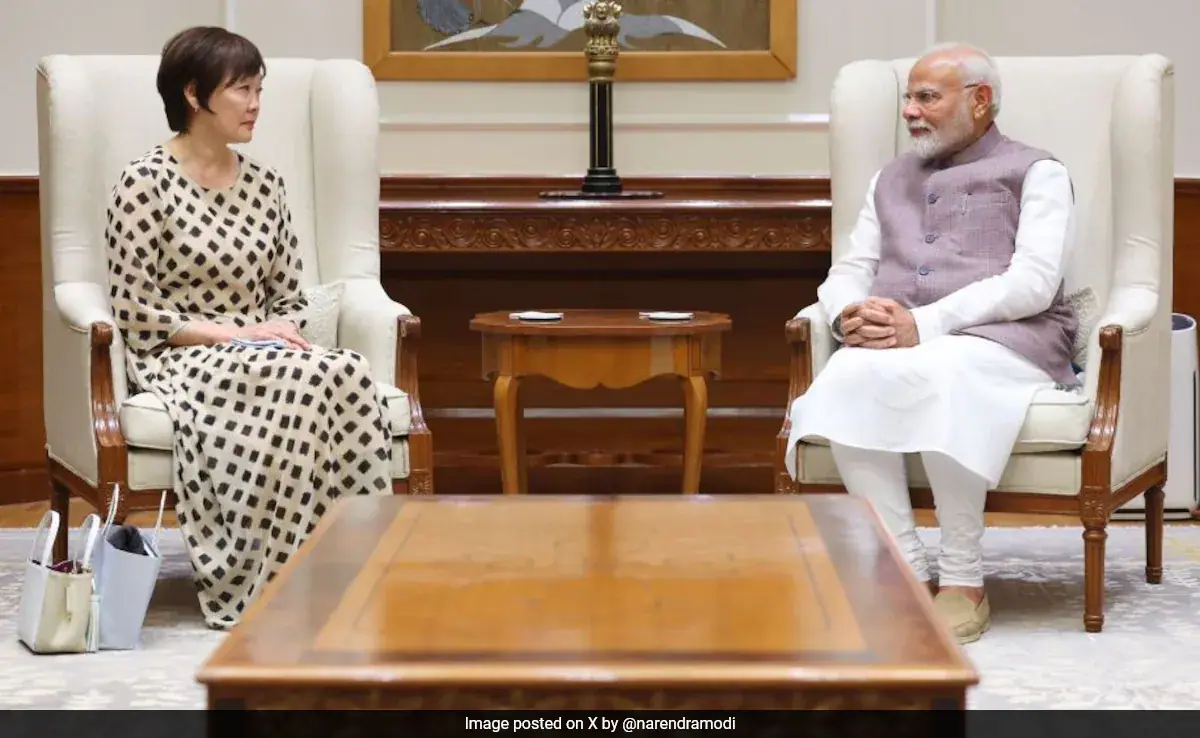PM Modi Remembers Close Friendship with Late Japanese PM Shinzo Abe While Meeting His Wife
New Delhi: PM Narendra Modi on Friday met with Akie Abe, wife of Japan’s late former Prime Minister Shinzo Abe, and fondly recalled his close friendship with Shinzo Abe.
Sharing a post on X, he wrote, “Pleased to meet Mrs. Abe this afternoon. Recalled my close personal friendship with former Prime Minister Shinzo Abe of Japan.”
Shinzo Abe was assassinated on July 8, 2022, while campaigning for his party. The accused targeted Abe, believing he had ties to the Unification Church, which he resented due to significant donations his mother had made to the sect.
PM Modi Meets Shinzo Abe’s Wife, Pays Tribute to Their Friendship
Sharing a post on X,PM Modiji wrote, “Pleased to meet Mrs. Abe this afternoon. Recalled my close personal friendship with former Prime Minister Shinzo Abe of Japan. Abe San’s belief in the potential of India-Japan relations will remain a source of enduring strength for us. Deeply appreciate Mrs. Abe’s continuing association with India.”
PM Modi also expressed his appreciation for Akie Abe’s ongoing engagement with India.
External Affairs Minister S. Jaishankar also took to X and shared a photo with Akie Abe on his handle.
Shinzo Abe Full Information
Who is Shinzo Abe ?
Shinzo Abe was a prominent Japanese politician who served as the Prime Minister of Japan for a record-breaking period from 2006 to 2007 and again from 2012 to 2020. His economic policies, known as “Abenomics,” were a major focus of his administration.
Shinzo Abe : Early Life and Career
Born in Tokyo in 1954, Abe was a member of the influential Abe family, which has a long history in Japanese politics .He graduated from Seikei University and spent some time working for a trading company before entering politics.
Prime Minister of Japan : Shinzo Abe
Abe was first elected Prime Minister in 2006 but resigned after only a year due to health issues. He returned to power in 2012 and served until 2020, making him the longest-serving prime minister in Japan’s history.
Abenomics: Economic Revival
One of Abe’s most significant achievements was the implementation of “Abenomics,” a three-pronged economic policy aimed at reviving Japan’s economy.
The policy pillars included:
Monetary easing: This involved aggressive quantitative easing by the Bank of Japan to increase the money supply and stimulate economic activity.
Fiscal stimulus: The government increased spending to boost demand and economic growth.
Structural reforms: Abe sought to make the Japanese economy more flexible and competitive through reforms in labor markets, agriculture, and other sectors.
While Abenomics had mixed results,it did contribute to a period of economic growth and a decline in deflation. However, critics argued that the policy relied too heavily on monetary easing and did not address underlying structural problems in the Japanese economy.
Foreign Policy and International Relations
Abe was a strong advocate for Japan’s role on the world stage. He sought to strengthen Japan’s alliance with the United States and to play a more active role in regional security. Abe also supported the expansion of Japan’s military capabilities, a move that was controversial in some circles.
Assassination
Sadly, Shinzo Abe was assassinated in July 2022 while giving a campaign speech in Nara, Japan. His death shocked the nation and the world, and it was seen as a major loss for Japanese politics.
Abe’s legacy is complex and multifaceted. He will be remembered for his economic policies, his efforts to strengthen Japan’s international role, and his tragic assassination.

Leave a Reply